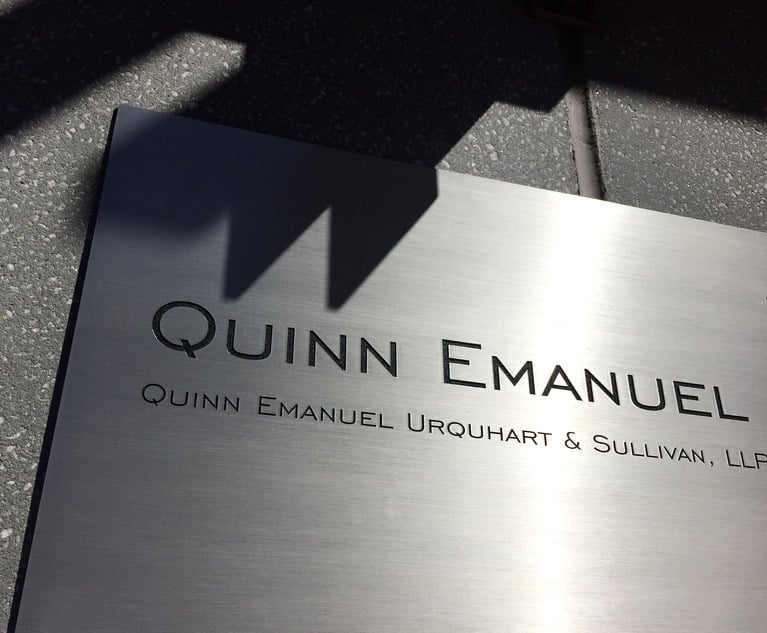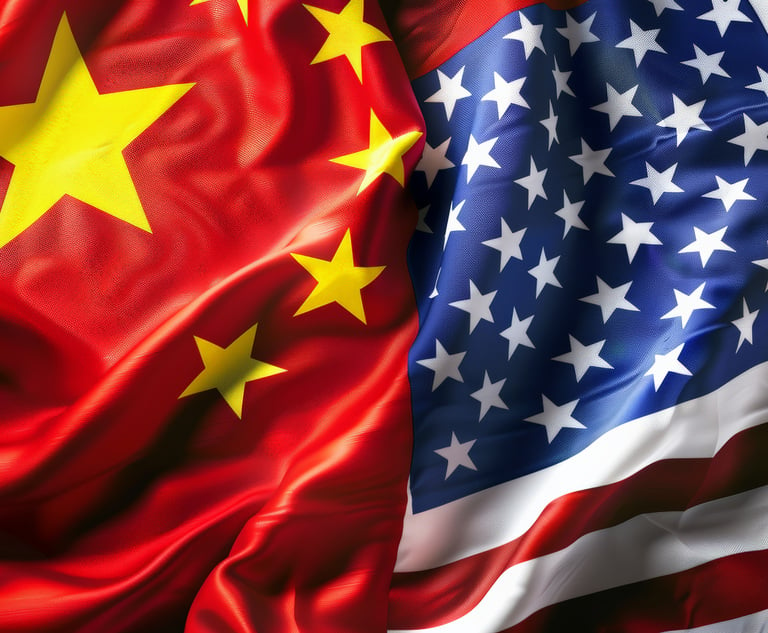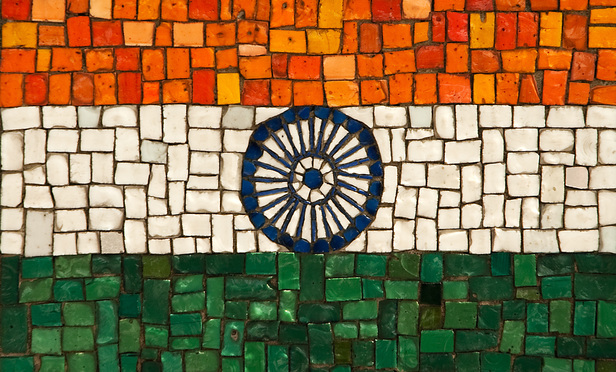Top UK firms to appear before Indian Supreme Court as push for market liberalisation continues
Firms including CC, Linklaters and HSF to put forward argument for 'fly-in, fly-out' practice
January 12, 2018 at 07:06 AM
3 minute read
A line-up of top UK law firms including Clifford Chance (CC), Linklaters and Herbert Smith Freehills (HSF) are set to appear before the Supreme Court of India next week, in the latest round of the long-running battle to open up the country's legal market to foreign lawyers.
The Bar Council of India (BCI) argued this week before the nation's top court, appealing a 2012 decision that saw the Supreme Court reaffirm a lower court decision to allow foreign lawyers to visit India on a 'fly-in, fly-out' basis and give advice on non-Indian law matters.
Next week, firms including CC, Linklaters, HSF, Norton Rose Fulbright, Ashurst, Clyde & Co, Eversheds Sutherland and Bird & Bird will appear before the court to put forward their case.
The case of Bar Council of India v AK Balaji & Ors has been a major roadblock to progress in the push for liberalisation of the Indian legal market. The BCI has insisted that discussion about the forms in which foreign law firms can operate in the country must wait until the case is decided.
The Indian Government has reportedly been planning to allow foreign firms to set up in the country's Special Economic Zones, where they will be permitted to give non-Indian law advice.
The BCI's main objection against the AK Balaji decision, initially issued by the Madras High Court in Chennai, was that the court allowed foreign lawyers to handle international commercial arbitration work, as well as advising on matters in which Indian lawyers may not have expertise.
The BCI considered both activities as the "practice of the profession of law", and should be regulated under its rules and the country's Advocates Act 1961.
The origin of the case dates back more than two decades, when foreign firms such as White & Case and Ashurst were licensed to have offices in India.
In 1995, a Mumbai-based professional organisation called Lawyers Collective challenged the foreign firms' Indian offices before the Bombay High Court. The court decided against the foreign firms, citing the 1961 law which prohibited non-Indian citizens from being admitted to practice in the country.
The foreign firms appealed the decision the next year to the Supreme Court, which sent the case back to the Bombay court. Thirteen years later, in late 2009, the Bombay High Court reaffirmed that foreign law firm offices were unlawful.
However, the 2009 decision did not address the issue of foreign lawyers practising foreign law in India without a physical office.
In 2010, a lawyer named AK Balaji filed a lawsuit challenging some 30 foreign firms – including the magic circle and US firm Davis Polk & Wardwell – over their right to practise any law in India.
In 2012, the Madras High Court ruled in favour of the 'fly-in, fly-out' arrangement for foreign lawyers to visit clients in India. The Supreme Court affirmed the decision, which the Bar Council of India soon appealed. The proceedings had stalled until this week's hearing.
Meanwhile, while the AK Balaji decision was being challenged by the Bar Council, another organisation called the Global Indian Lawyers Association filed a petition in 2015 to challenge the 2009 Bombay court decision, calling for the liberalisation of the market. This case is now pending before the Supreme Court.
This content has been archived. It is available through our partners, LexisNexis® and Bloomberg Law.
To view this content, please continue to their sites.
Not a Lexis Subscriber?
Subscribe Now
Not a Bloomberg Law Subscriber?
Subscribe Now
NOT FOR REPRINT
© 2025 ALM Global, LLC, All Rights Reserved. Request academic re-use from www.copyright.com. All other uses, submit a request to [email protected]. For more information visit Asset & Logo Licensing.
You Might Like
View All
X Ordered to Release Data by German Court Amid Election Interference Concerns

Quinn Emanuel's Hamburg Managing Partner and Four-Lawyer Team Jump to Willkie Farr

Trump ICC Sanctions Condemned as ‘Brazen Attack’ on International Law

U.S.- China Trade War: Lawyers Label WTO Dispute Pointless, Clients Have Their Hands Tied
Trending Stories
- 1States Accuse Trump of Thwarting Court's Funding Restoration Order
- 2Microsoft Becomes Latest Tech Company to Face Claims of Stealing Marketing Commissions From Influencers
- 3Coral Gables Attorney Busted for Stalking Lawyer
- 4Trump's DOJ Delays Releasing Jan. 6 FBI Agents List Under Consent Order
- 5Securities Report Says That 2024 Settlements Passed a Total of $5.2B
Who Got The Work
J. Brugh Lower of Gibbons has entered an appearance for industrial equipment supplier Devco Corporation in a pending trademark infringement lawsuit. The suit, accusing the defendant of selling knock-off Graco products, was filed Dec. 18 in New Jersey District Court by Rivkin Radler on behalf of Graco Inc. and Graco Minnesota. The case, assigned to U.S. District Judge Zahid N. Quraishi, is 3:24-cv-11294, Graco Inc. et al v. Devco Corporation.
Who Got The Work
Rebecca Maller-Stein and Kent A. Yalowitz of Arnold & Porter Kaye Scholer have entered their appearances for Hanaco Venture Capital and its executives, Lior Prosor and David Frankel, in a pending securities lawsuit. The action, filed on Dec. 24 in New York Southern District Court by Zell, Aron & Co. on behalf of Goldeneye Advisors, accuses the defendants of negligently and fraudulently managing the plaintiff's $1 million investment. The case, assigned to U.S. District Judge Vernon S. Broderick, is 1:24-cv-09918, Goldeneye Advisors, LLC v. Hanaco Venture Capital, Ltd. et al.
Who Got The Work
Attorneys from A&O Shearman has stepped in as defense counsel for Toronto-Dominion Bank and other defendants in a pending securities class action. The suit, filed Dec. 11 in New York Southern District Court by Bleichmar Fonti & Auld, accuses the defendants of concealing the bank's 'pervasive' deficiencies in regards to its compliance with the Bank Secrecy Act and the quality of its anti-money laundering controls. The case, assigned to U.S. District Judge Arun Subramanian, is 1:24-cv-09445, Gonzalez v. The Toronto-Dominion Bank et al.
Who Got The Work
Crown Castle International, a Pennsylvania company providing shared communications infrastructure, has turned to Luke D. Wolf of Gordon Rees Scully Mansukhani to fend off a pending breach-of-contract lawsuit. The court action, filed Nov. 25 in Michigan Eastern District Court by Hooper Hathaway PC on behalf of The Town Residences LLC, accuses Crown Castle of failing to transfer approximately $30,000 in utility payments from T-Mobile in breach of a roof-top lease and assignment agreement. The case, assigned to U.S. District Judge Susan K. Declercq, is 2:24-cv-13131, The Town Residences LLC v. T-Mobile US, Inc. et al.
Who Got The Work
Wilfred P. Coronato and Daniel M. Schwartz of McCarter & English have stepped in as defense counsel to Electrolux Home Products Inc. in a pending product liability lawsuit. The court action, filed Nov. 26 in New York Eastern District Court by Poulos Lopiccolo PC and Nagel Rice LLP on behalf of David Stern, alleges that the defendant's refrigerators’ drawers and shelving repeatedly break and fall apart within months after purchase. The case, assigned to U.S. District Judge Joan M. Azrack, is 2:24-cv-08204, Stern v. Electrolux Home Products, Inc.
Featured Firms
Law Offices of Gary Martin Hays & Associates, P.C.
(470) 294-1674
Law Offices of Mark E. Salomone
(857) 444-6468
Smith & Hassler
(713) 739-1250









